Grow plants in space: Park Jae-hong’s life journey is a testament to resilience and innovation. Like many of his classmates at culinary school, Park dreamed of becoming a chef in his teenage years. However, when his aspirations to work in a hotel kitchen fell through due to unforeseen circumstances, he sought a new path in a quiet countryside town, diving into farming. Unfortunately, his lack of experience in agriculture cut that venture short.
Yet, Park’s ability to find growth amid setbacks became his defining trait. His farming challenges ignited a passion for plants and led him to carve out a niche in restoring forests with mosses. Today, at 29 years old, Park is the CEO of the moss research startup Code of Nature and harbours aspirations of growing plants in outer space.
Founded in 2021 in South Gyeongsang Province, South Korea, Code of Nature employs 13 people, including six dedicated researchers. The company’s primary mission revolves around restoring degraded forests and lands. “Our theme and objective are to restore damaged forest ecosystems in harmony with nature,” Park shared during a recent video call with 4i Magazine. “Unlike other companies focused on land restoration, we strive to replicate the natural recovery process as closely as possible, with moss being our key to achieving that goal.”
Code of Nature’s business is built on land restoration requests from clients, such as city councils or company-sponsored projects. Upon receiving a request, the company begins by sending two employees into the field to obtain a soil sample. The employees then return to the office, analyse 17 different elements of the soil, and compare the test results with healthy soil samples to determine what nutrients the damaged area may require.
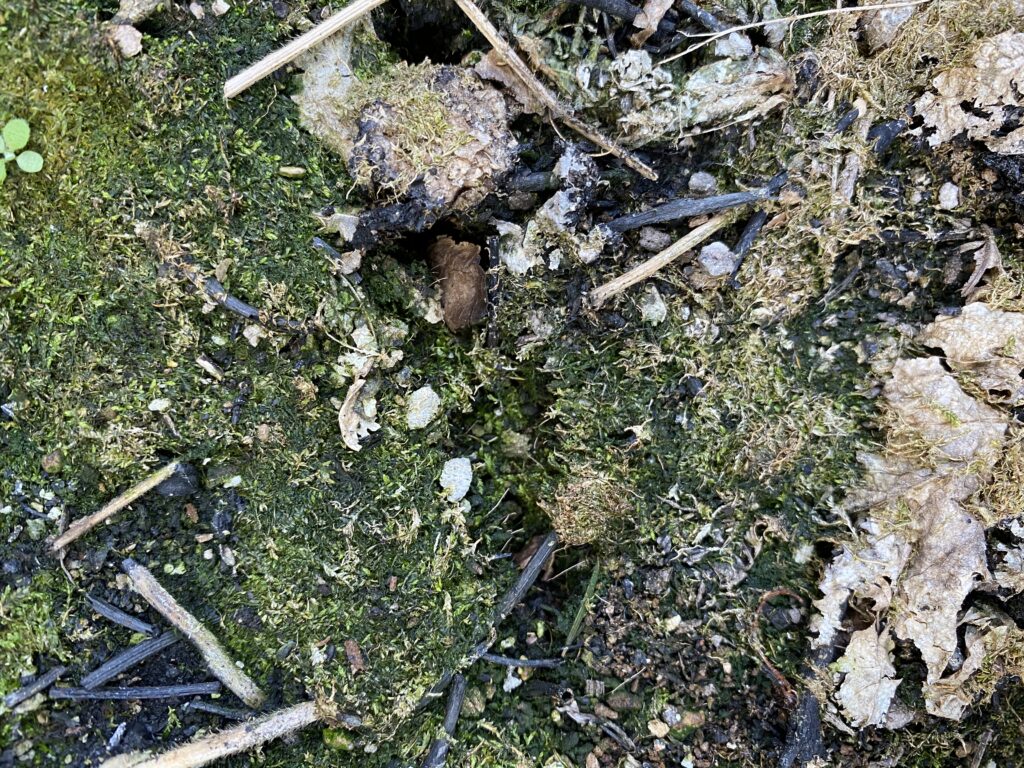
This is where Code of Nature’s signature technology, Mosby, comes into play. As the name suggests, Mosby is composed of moss spores. The company explains on its website that mosses are more likely to thrive in barren soil, as they can absorb nutrients through pores on their stems and leaves rather than through roots.“Unlike other types of plants that reproduce through seeds, mosses reproduce via spores — light cells that can easily travel through the air,” Park explained. “We incubate these mosses in large quantities and then encapsulate them into products named Mosby, combined with additional nutrients and microbes that can help the mosses grow.”
Grow plants in space
Mosby capsules, customised for specific areas with indigenous mosses suited to their soil conditions, are diluted in water and then sprayed onto barren soil from aircraft such as drones and helicopters. Human workers with sprinklers may also be involved in this process. Although a young startup celebrating its fourth year in business, Code of Nature has been commissioned for several major restoration projects in South Korea. For instance, the company has been actively involved in restoring the reclaimed land at Taean on the country’s west coast. Another series of projects has taken place at Doneri Hill, Jeju Island, focusing on recovering environmental damage caused by tourists.
While several companies focus on environmental purification, none in South Korea restore the soil itself like Code of Nature does. Environmental purification or filtration technologies address problems caused by external factors, such as germs or viruses. In contrast, restoration technologies prioritise supplementing and enhancing nutrients in malnourished environmental systems.
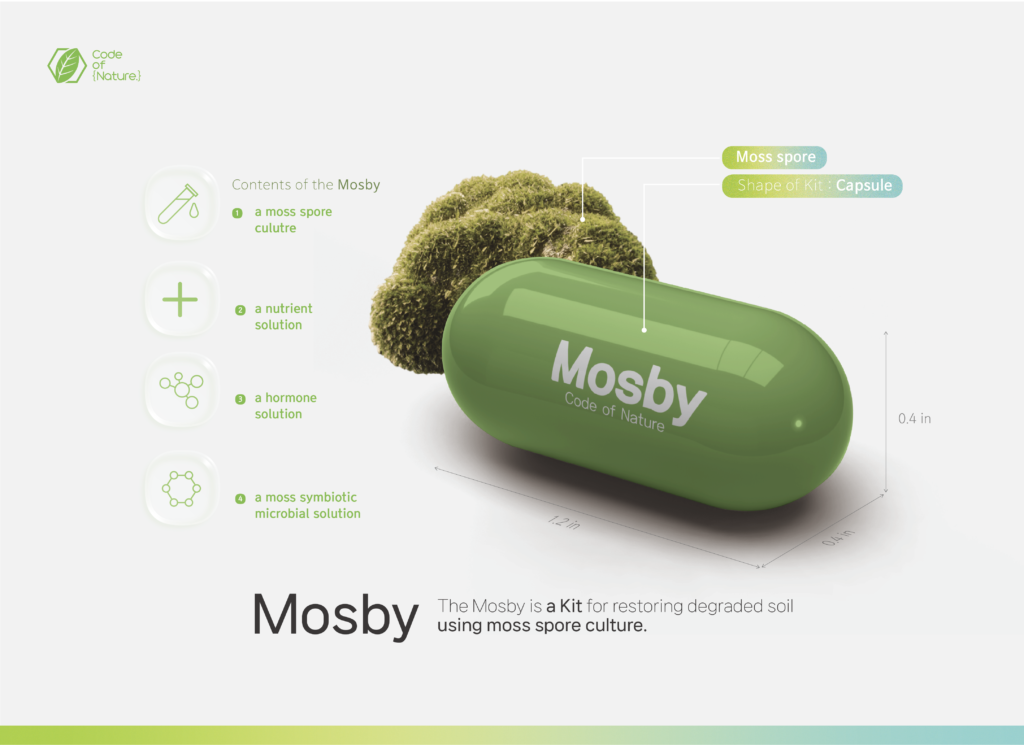
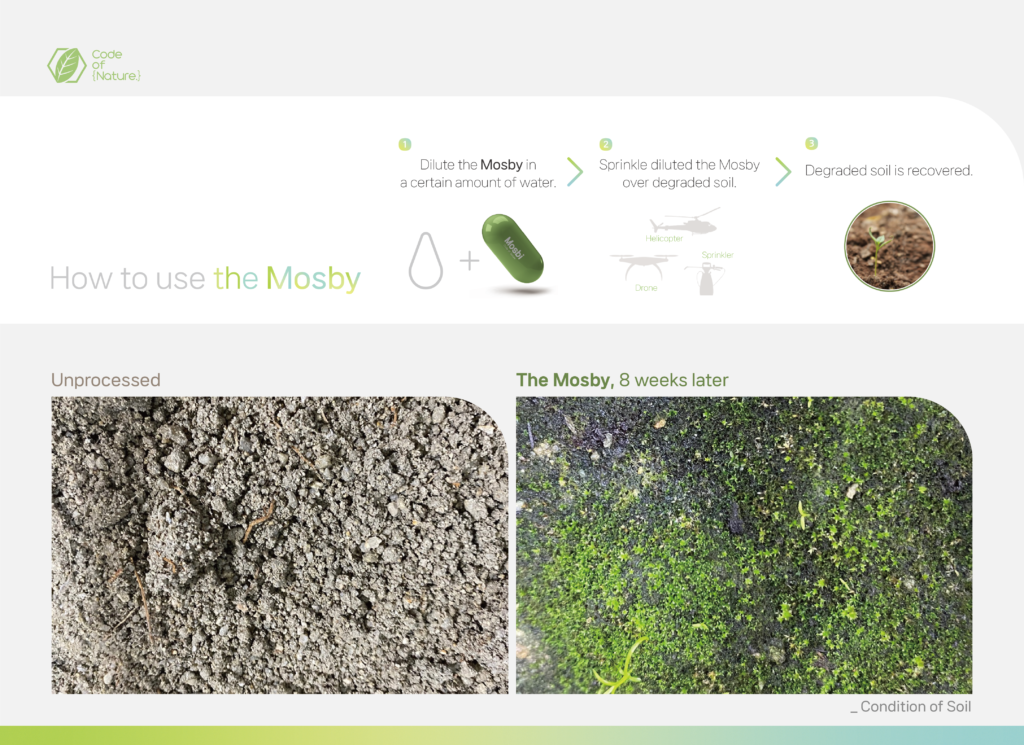
With its unique approach, Code of Nature has recently expanded its reach overseas. In September 2023, the company won the EQT Foundation’s Impact Pitch Competition with its moss culture kit, receiving a direct investment of €100,000 and professional assistance from the EQT group. This year, the company showcased its flagship kit at the Consumer Electronics Show held in Las Vegas, receiving attention from investors worldwide. The ultimate goal for Code of Nature’s plant products has always been space. “Since the moment we founded the company, I yearned to take our products into space,” Park said.
Park believes there is potential for moss to grow in outer space, considering that mosses were among the first land plants to evolve, indicating their resilience and ability to thrive in primitive environments. “This suggests that there’s significant potential for mosses to grow in harsh conditions on other planets and recreate Earth-like landscapes in space.”
Startup
The reasoning behind cultivating Earth-like land in space is quite simple—it is cost-effective for human explorers. “If humans are to live outside of Earth, they must either bring food with them or utilise the soil at their destination to produce food,” Park explained. “Both the Moon and Mars have depleted soils with high acidity, making it difficult for plants to survive. This means that for humans to thrive beyond Earth, they would need regular food deliveries from their home base, which is expensive. It is much more cost-effective to find a solution to restore the soil on these celestial bodies to the point where they can cultivate food.”
Park revealed that he was inspired to grow plants in non-Earth environments by the film The Martian. The film follows an astronaut who becomes stranded on Mars and struggles for survival while managing limited resources until rescue arrives from Houston. “I’m often influenced by mass media,” Park said. “While watching the film, I wondered if food deliveries from Earth to Mars could continue long-term, and how hopeless the situation would feel if an unfortunate accident occurred. To mitigate such risks and costs, I thought the best option would be to normalise the exo-Earth regolith, enabling the soil to support plant growth like that of our green planet.”
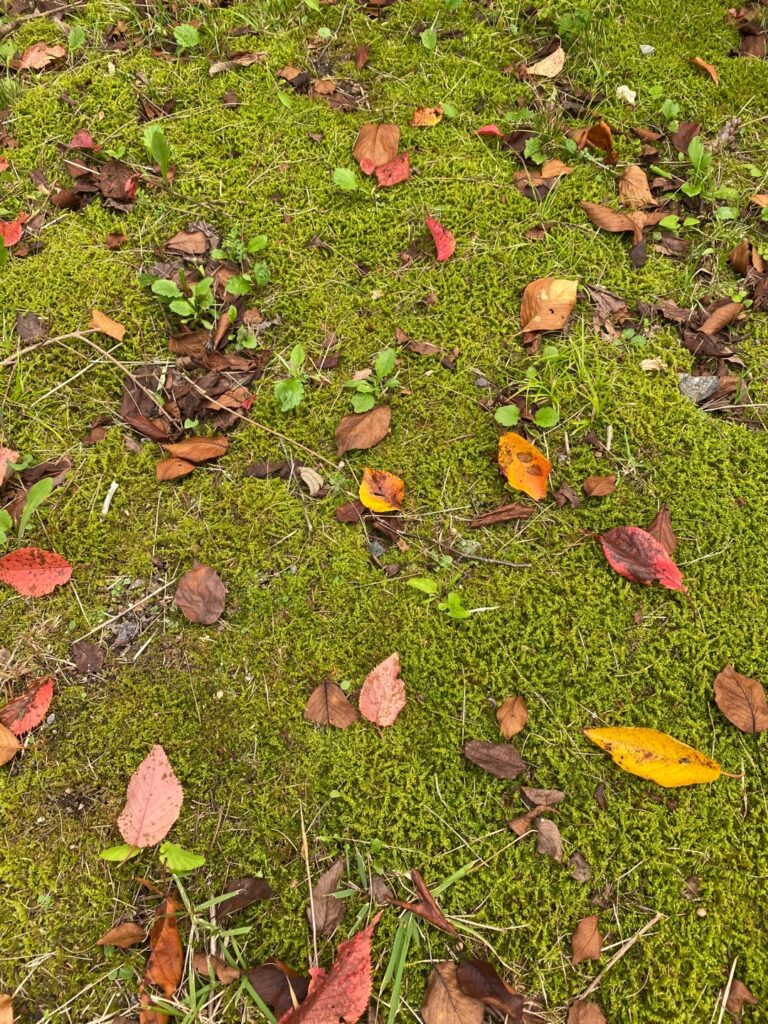
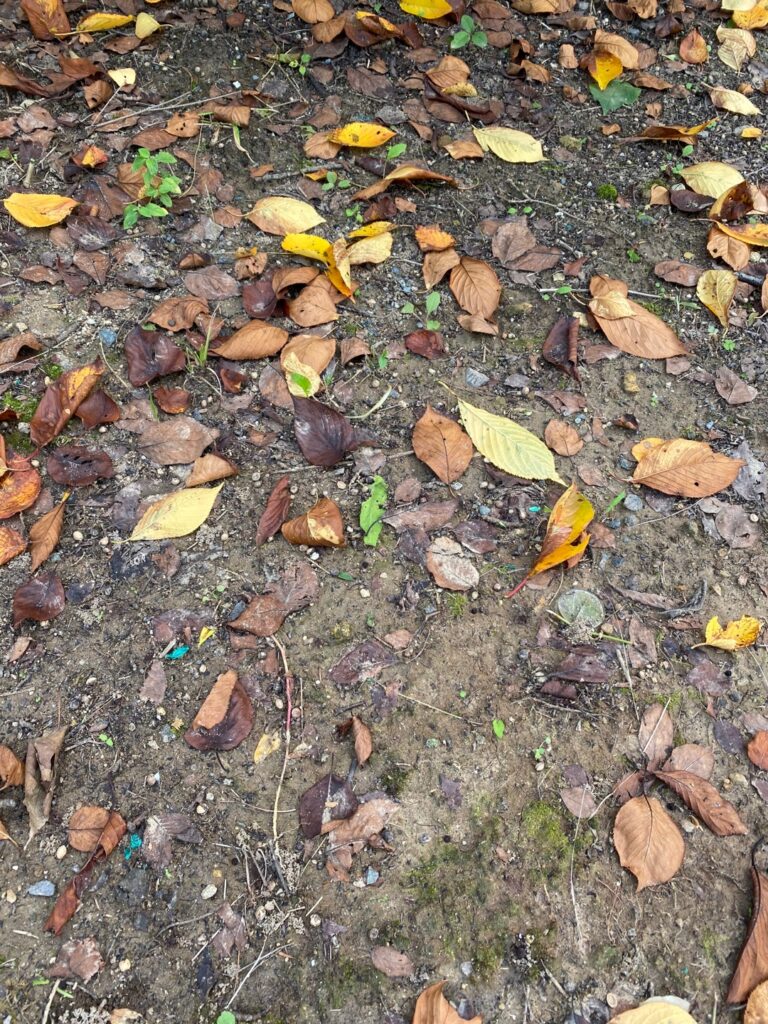
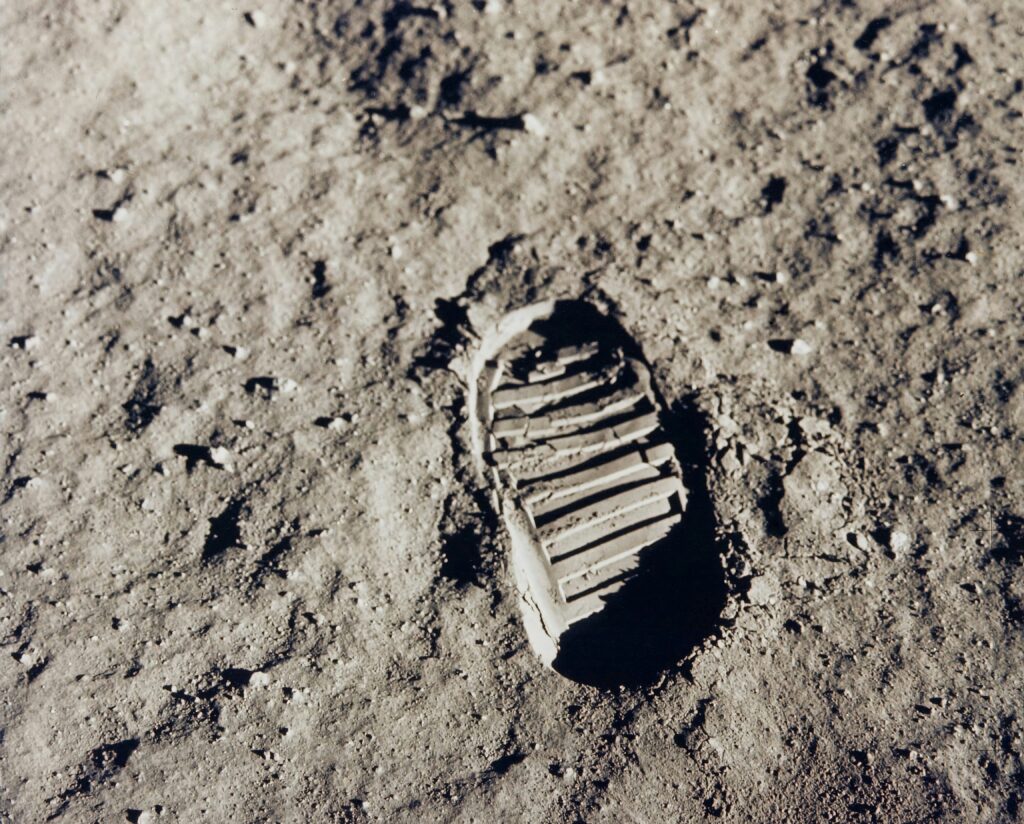
Code of Nature
Code of Nature states that its researchers have been working on solutions to make Lunar and Martian soil suitable for growing plants over the past year. Thankfully, their initial rounds of tests on artificial simulants for both environments have shown promising results, with several test crops growing faster in treated soils than in the control samples.
Park notes that some of the company’s biggest challenges in its space projects are a need for more public awareness and financial support.
“This type of research doesn’t promise quick returns; you expect to see results more in the long run,” he told 4i Magazine. “Still, I believe our technology will become essential in the future. If we can garner more public attention as well as investments from corporations and governments, it may become much easier for us to commit to this space project.”
While their current primary projects focus on rejuvenating deforested areas, Code of Nature plans to shift more attention towards normalising space soils over the next five years. Park mentioned that he dreams of someday becoming an astronaut, experimenting with various mosses while ensuring their health outside of Earth.
“People who don’t know much about our work may question whether the world really needs land restoration technologies,” Park said.
“Of course, if you leave depleted land for hundreds of years, it may recover on its own. However, we cannot predict the side effects humanity might experience during that process. I believe we have a responsibility to rejuvenate the land, as we are the ones who caused the environmental harm in the first place. “For those working in this industry, I want to acknowledge their efforts and say that they have every reason to be proud. I anticipate more opportunities will arise in this field, and I would like to welcome newcomers to join this exciting journey.”



